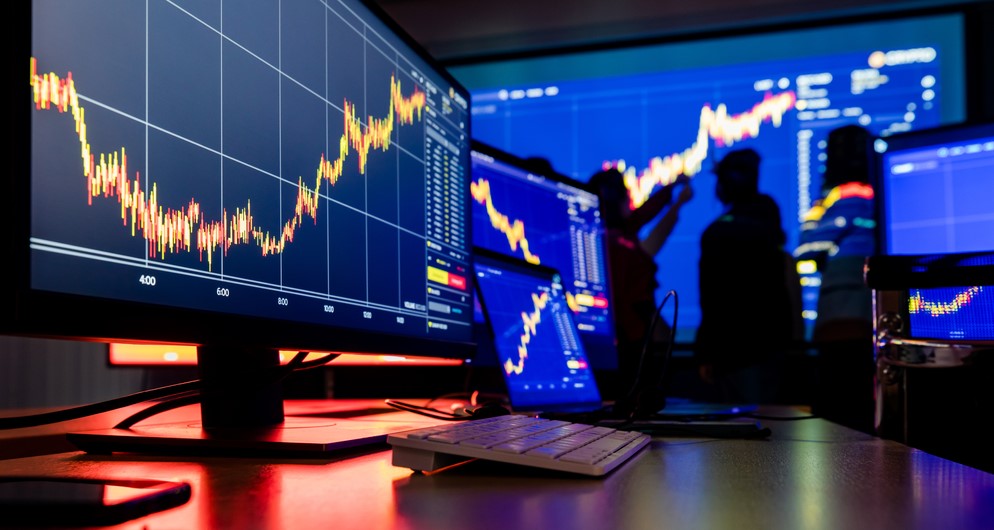Companies need to do more to prevent insider trades using ETFs while regulators work to outlaw ‘shadow trading’ altogether, industry experts have told ETF Stream.
A paper from Swedish and Australian academics shone a light on shadow trading last month after finding company insiders had bought more than $2.75bn in ETFs between 2009 and 2021 to front-run mergers and acquisitions (M&A) announcements.
The paper said there was “significant” levels of shadow trading in 3-6% of sector ETFs containing target companies in the five-day periods ahead of M&A announcements, with this range jumping to 7-14% of relevant ETFs and $360m of trades per year by the end of the study period.
While this volume is “economically meaningful”, the data only reflects front-running on M&A news while discounting other price-sensitive events including index rebalances, company earnings and regulatory changes. They also only focus on US companies meaning ETF shadow trading is likely taking place on a far larger scale.
The authors said their findings should act as a wake-up call to lawmakers about whether current legislation is equipped to act against concealed insider trades in ETFs and more broadly.
Dave Nadig, who started his 30 years in ETFs at firms such as Barclays Global Investors – which created iShares – pointed to the ongoing case surrounding options trading in pharmaceutical company, Incyte.
The case has been pending in Californian courts since 2016, with the Securities and Exchange Commission (SEC) alleging then head of business development at rival firm Medivation, Matthew Panuwat, conducted shadow trades ahead of his firm being acquired by Pfizer.
The SEC said: “Panuwat allegedly purchased the options within minutes of learning highly confidential information concerning the merger.
“According to the complaint, Panuwat knew that investment bankers had cited Incyte as a comparable company in discussions with Medivation and he anticipated that the acquisition of Medivation would likely lead to an increase in Incyte's stock price.”
Nadig said the outcome of this case will set a precedent for shadow trading including within ETFs.
“If the SEC wins, then the rules are super clear on this front. If the SEC loses, then the ETF version of this is legal,” he said.
Nate Geraci, co-founder and president of The ETF Store, said the SEC will likely increase their focus on shadow trading but this is “not going to materially impact” ETFs.
“My guess is that the SEC will begin placing additional scrutiny on these types of trades and ultimately tighten rules around certain investment vehicles that are off limits to insiders.”
“It is important to remember that ETFs are simply a vehicle,” Geraci continued. “Company insiders illegally utilising this vehicle are to blame.”
Instead, both argued companies need to do more in the interim to ensure staff are not trading on privileged information using funds and derivatives.
“Most publicly traded companies have strict policies governing insider trading,” Geraci said. “That is where this issue should be addressed in the meantime.”
Nadig agreed: “If you are an executive of Exxon and Exxon is involved in M&A activity, the rules are super clear, trading in The Energy Select Sector SPDR Fund (XLE) is the same as trading Exxon.
“If Exxon’s compliance regime is so weak that they are not even looking for anything but the actual ‘XOM’ ticker, that is on Exxon, and if regulators need to reiterate this, then by all means they should.
“My opinion is that it is 100% against the spirt of insider trading rules and most compliance departments I have ever worked under would have been all over this with duplicate confirms.”
While some have argued ETFs’ diversified nature makes them an inefficient vehicle for this kind of nefarious activity, Geraci suggested the “recent proliferation of highly concentrated thematic ETFs” has offered bad actors a new route to conceal insider trades with greater precision.
The academic study found 80% of ETF shadow trades occur in ETFs targeting health care, technology and industrials from issuers including BlackRock and Vanguard.
BlackRock declined to comment and Vanguard did not respond to request for comment.






